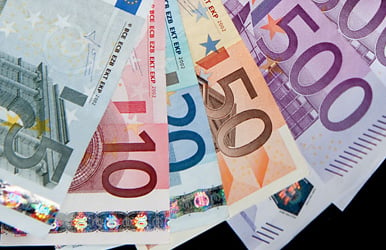Austria has been a member of the EU since 1995, and of the Eurozone since 1999. The Austrian Schilling is now consigned to the dustbin of history, a memory in the same vein as the French Franc or the German Deutschmark. But not a faded memory, not yet – the experience of a sudden change in currency is, at least in the developed world, a uniquely European experience.
Austrians abandoned centuries of tradition when they adopted the Euro, so the switch to bitcoin only has to contest with decades of convention.
The Austrian government’s position on Bitcoin remains, as with most of Europe, in a state of flux. As with its senior EU partner, Germany’s decision that Bitcoin should be considered a ‘Unit of Account’ or in layman’s terms, a taxable commodity – Austria’s position, since parliamentary questions were first raised in July of last year, has oscillated between indifference and hostility.
Indeed, the Financial Regulatory Authority’s guidance reads like the warning sign one might find next to dangerous bodies of water – volatility, lack of statutory regulation, hacking alerts and lack of legal protection are all highlighted and topped off with a note that “the anonymity of Bitcoin is conducive to criminal abuse”, with a link to the EBA’s 2013 cryptocurrency warning.
Yet for all the bluster, little firm legislation is in place. Bitcoin in Austria remains VAT exempt, capital gains tax on trading the currency as an asset is of course applicable, though considering the recent downward trend of the currency, that may well turn out to be a non issue.
Like most member states, Austria seems reluctant to put in place hard legislation prior to an EU-wide decision being taken. Recent events at the European Court of Justice have demonstrated that the disagreement between the UK and Germany is anything but ephemeral – entrenched positions between the two may cause delays that make US political filibustering feel like a brief after-dinner speech.
Politics aside, the community in Austria seems to be thriving. The capital, Vienna, sports no fewer than 20 bitcoin-friendly vendors ranging from restaurants, bistros, bars and even a school teaching computer programming to children.
Meanwhile, the nation’s second city, Graz, could hardly be said to lagging behind, with 18 vendors, including apparel, apartments to rent, shiatsu massages and even Angus steaks.
The first bitcoin ATM, set up in July, was successful enough to inspire a second machine to be added in August. And of course, as with other European countries, the grass root movement is proactive and centred around social events where the fee paying members of Bitcoin Austria can gather, discuss cryptocurrency news – and of course, spend bitcoin.
And if Austria – a country that is not quite at the heart of Europe but not far off the mark in terms of both geographical location and its place in the wider community – fails to make the kind of waves bitcoin is making in neighbouring Germany, it’s not through lack of enthusiasm.
To read Ian Jackson's full article, the first installment of a Bitcoin Around the World series, go to InsideBitcoins.com


 Please whitelist us to continue reading.
Please whitelist us to continue reading.
Member comments